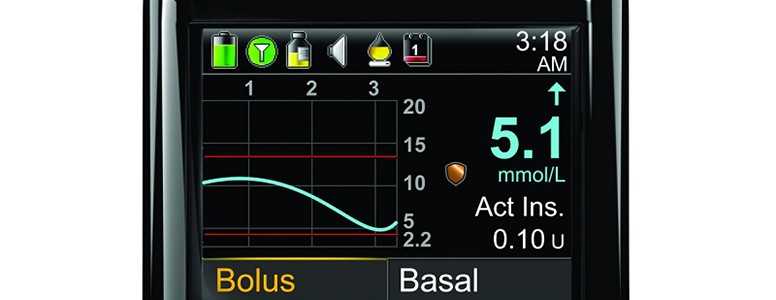Medtronic’s newest insulin pump, the MiniMed 670G, with artificial pancreas technology, has been submitted for approval in the US.
If given the green light by the Food and Drug Administration (FDA), Medtronic’s innovative system would arguably become the world’s first artificial pancreas to be commercially available.
Continuous glucose monitoring (CGM) sensors measure glucose levels in real time and the pump responds to glucose levels automatically by adjusting the amount of insulin delivered to the body.
The MiniMed 670G goes a step further than the MiniMed 640G, which is currently available in the UK. Whilst the 640G uses an algorithm to predict and prevent low blood glucose levels (hypoglycemia) occurring, the 670G will include an algorithm that helps prevent glucose levels from going too high as well.
Researchers tested the new system on 124 patients with type 1 diabetes in a large-scale study. Data presented to the American Diabetes Association’s 76th Annual Scientific Sessions found the device helped to lower HbA1c levels and maintain consistent glucose levels in participants.
The average HbA1c level of participants reduced from 57 down to 52 mmol/mol (7.4 to 6.9%) over the course of the three-month study period. The study also showed that the system enabled 58 per cent of patients to achieve an HbA1c of below 53 mmol/mol (7.0%).
Further research conducted among 12 adults and 16 adolescents found overnight use of the technology cut the time needed for adults to achieve their target glucose range. Nocturnal hypoglycemia was also decreased in the adolescents.
What's new on the forum? ⭐️
Get our free newsletters
Stay up to date with the latest news, research and breakthroughs.







